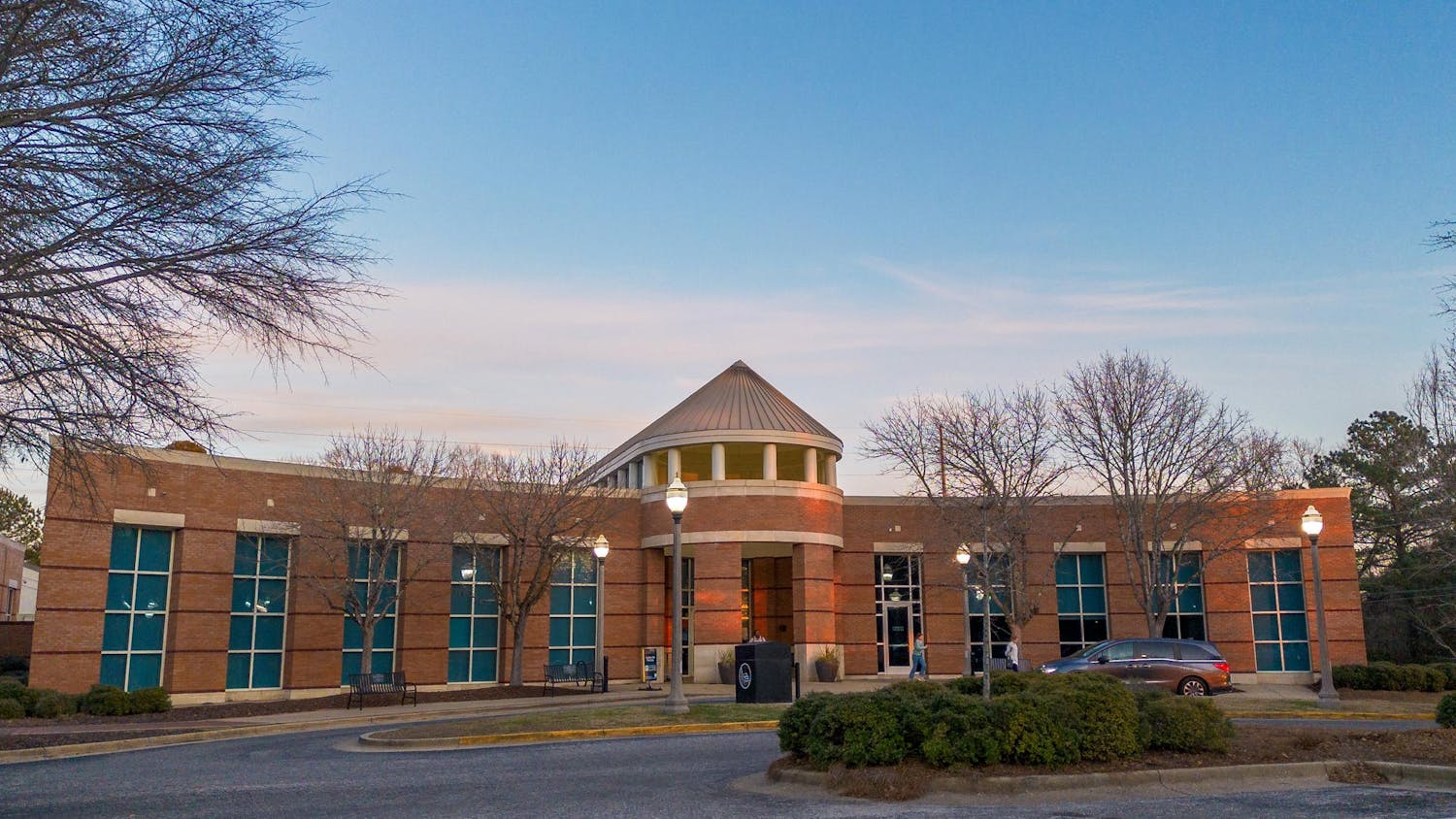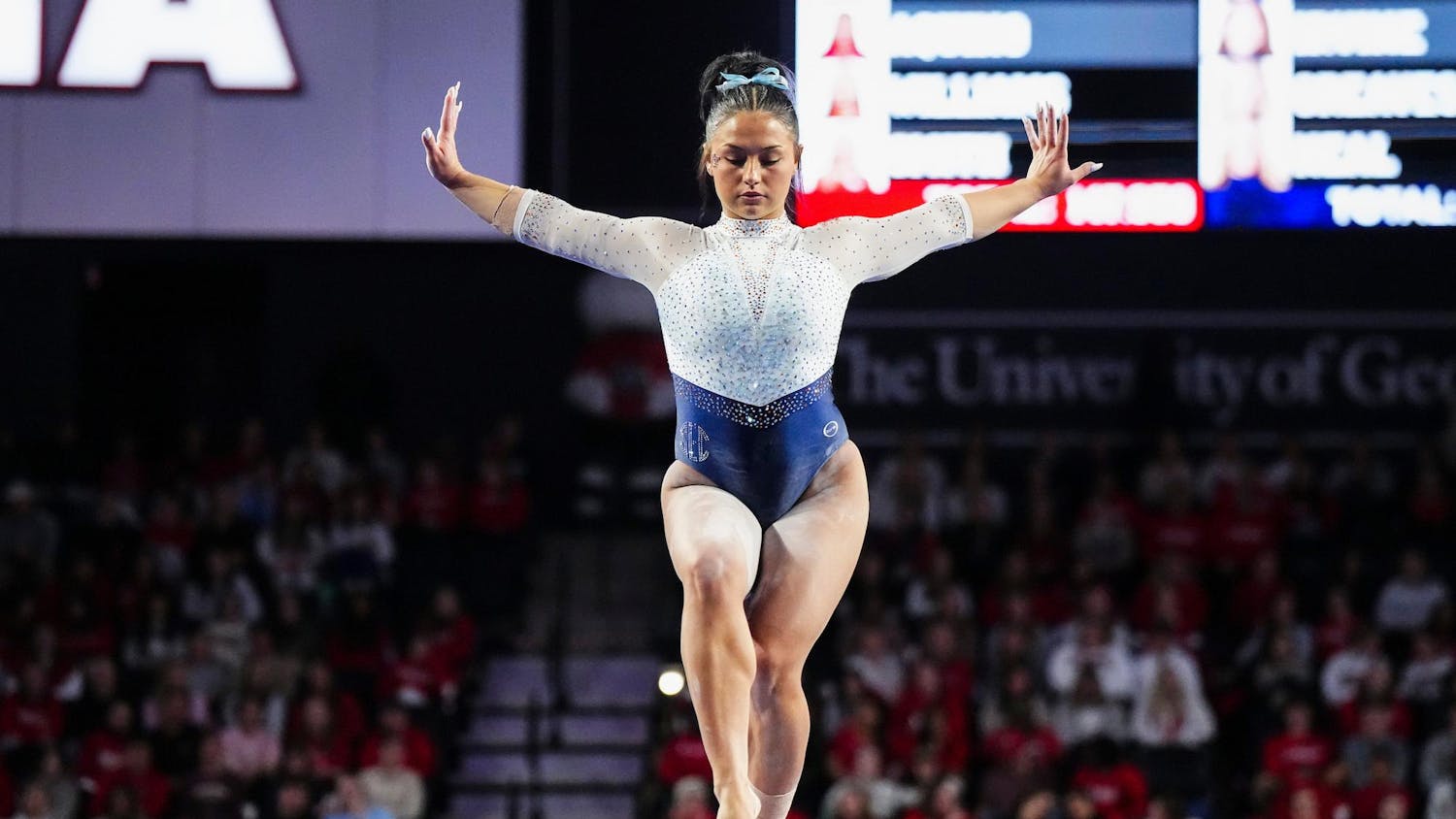It started with Harvey Weinstein, and then all the other dominos fell. The men of Hollywood are being exposed for their sexual misconduct, but is not limited to Hollywood elites.
Violence against women is a pervasive problem. According to statistics by Rape, Abuse & Incest National Network, 23 percent of undergraduate women will experience sexual assault while they are in college.
Auburn’s department of campus safety and security’s Rape Aggression Defense program seeks to educate female students on the best self-defense techniques to defend themselves if they were ever to become the target of sexual violence.
The class concludes with a simulated fight where students apply the techniques they learned against a padded officer. It prepares them for attacks that evolve and change in the moment.
Cameron Carmello, junior in theater, participated in the class and says she feels it helped her be more alert and prepared.
“I work at Pieology, and I often find myself walking home alone at night after a long shift,” Carmello said. “It can be
The class focuses on empowering women both mentally and physically. It trains them to be alert and lessens the fear they have to experience on a day to day basis.
Elizabeth Turner, sophomore in pre-media studies, spoke about the psychological effects of sexual violence.
“It’s something I have to think about often, especially now that I am in college,” Turner said. “I haven’t taken a self-defense class. I feel like if it came to it I could fight off an attacker, but I hate that I have to think about that.”
Carmello said one of the things she practices when walking is holding her keys in her fist. Carmello said she does this so her punch would have extra impact.
“It also just helped to know that I could be quick and react in the moment,” Carmello said. “I now know that I could throw the weight of a 200-pound man off me if I use the right technique.”
In light of current events, more and more women who have experienced sexual assault have felt empowered to speak out in person and on social media as evident by the #metoo campaign.
“I think that all the cases coming up in the media are not surprising,” said Daphney Portis, senior in political science. “We’ve known this is happening, but women are taught to endure a lot. Many of the women subjected to these sexual advances felt voiceless.”
Portis said she felt it was a step forward, but there is still a lot more to be done.
“I think the current policy isn’t enough to protect potential victims and survivors,” Portis said. “Women don’t have the ability to speak out because the law doesn’t back them up. If they don’t have the right evidence, there is little the law will do for them.”
Senior in political science, Victoria Lewis, is a vocal feminist on campus. She said while she found the allegations themselves to be sadly unsurprising, she was surprised by the way they came out in rapid succession.
“I find it surprising and wonderful the way women are empowering each other to speak out,” Lewis said. “I am happy to see that those accused are receiving more backlash than the victims because, sadly, that has not been the case historically. Society needs to have a zero-tolerance policy for this kind of thing.”
These students said they felt the news was shocking and showed how, culturally, there is a long road ahead in order to end this kind of violence. However, many students expressed hopefulness that the more openly these instances of violence are talked about, the closer a solution.
Hallie Patterson, junior in theater, said she had not taken a self-defense class but strongly felt that kind of preparation was not enough. “That will teach you to fend off drunk guys in bars, but the sad truth is it comes at you from more angles,” Patterson said
According to RAINN, 45 percent of rapes are perpetrated by a friend or acquaintance of the victim. Patterson said she was saddened by the commonality in sexual assaults occurring by someone the victim knows or trusts like a friend or coworker. Patterson said they use tactics like coercion and manipulation instead of always just physical force.
“It scares me; we have probably all met an aggressor,” Patterson said. “I feel helpless. I want to be a good feminist and a good citizen, but it seems like there is so much darkness.”
Whether it is the guy at the bar whose comments made them uncomfortable or not having the luxury of walking to their car alone at night, Auburn women have shared their feelings regarding the awareness they have for the danger these aggressors pose.
Rachel Sugg, sophomore in English literature, told a story of a time she was at The Bean with friends and noticed a man sitting nearby acting strangely.
“He seemed to be looking at us a lot, and when he left, one of the women working there came over to where we were sitting and told us that she had noticed him taking pictures of us,” Sugg said. “She said that she had written down his license plate number and that if any of us saw him again or felt like he was following us that we could tell her, and she would give his plate number to the police.”
Sugg said the employee said women have to watch out for each other.
“The situation made me feel nervous and uncomfortable, but it was nice to know that I had other women out there looking out for me,” Sugg said.
As more women come forward it sparks dialogue about safety and encourages women to look out for each other against these aggressors. Auburn has many resources for women on campus, and the green dot program teaches students how to be active bystanders in dangerous situations.
Do you like this story? The Plainsman doesn't accept money from tuition or student fees, and we don't charge a subscription fee. But you can donate to support The Plainsman.




